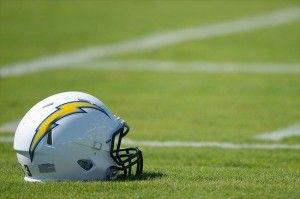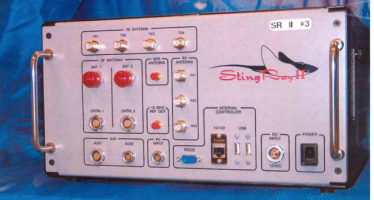Hometown fans hit NFL over L.A. move
As the National Football League neared a final decision on whether to relocate any franchises to Los Angeles, fans in cities that could lose teams gave the league an earful.
Commissioner Roger Goodell recognized how touchy things have become, as an unprecedented sequence of proposals and counterproposals has played out among the St. Louis Rams, San Diego Chargers and Oakland Raiders. “We’ve been 20 years not in the Los Angeles market,” Goodell said, according to ESPN, calling an L.A. team “a huge plus for fans. There are 20 million fans in that market that would love to have a franchise. But we’ve got to do this responsibly. There’s a process, and we’re going through that process.”
Its latest set of twists and turns has played out at hearings in the hometowns of teams contemplating a move. “The three-hour meetings, held on consecutive nights in downtown theaters, were more listening sessions for the NFL than back-and-forth exchanges with fans, who registered online for free passes to the events,” the Los Angeles Times reported. “The league also streamed the hearings online.”
Fan fury
 At times, fan frustration dominated. “It was loud. It was angry. It was sad. But no matter how much they pleaded for the Chargers to stay in San Diego, many wondered if it even mattered,” USA Today observed at the city’s downtown Spreckels Theater. The Chargers, according to the paper, “say they receive 25 percent of their local revenues from Los Angeles and Orange counties.” In St. Louis, the assembled booed every mention of Stan Kroenke, the Rams owner seemingly intent on shifting his team to a complex to be built on an Inglewood lot where a Walmart once might have been. Echoing a common sentiment, one fan told the Times “there was a feeling around St. Louis that the town hall meeting was merely a formality.”
At times, fan frustration dominated. “It was loud. It was angry. It was sad. But no matter how much they pleaded for the Chargers to stay in San Diego, many wondered if it even mattered,” USA Today observed at the city’s downtown Spreckels Theater. The Chargers, according to the paper, “say they receive 25 percent of their local revenues from Los Angeles and Orange counties.” In St. Louis, the assembled booed every mention of Stan Kroenke, the Rams owner seemingly intent on shifting his team to a complex to be built on an Inglewood lot where a Walmart once might have been. Echoing a common sentiment, one fan told the Times “there was a feeling around St. Louis that the town hall meeting was merely a formality.”
Comments from the League seemed to reinforce that cynical judgment. In remarks reported by the Times, NFL executive vice president Eric Grubman called the hearings “very cathartic,” but denied that fans’ strongly-voiced opinions ultimately held any sway. “What I got from the crowd was the passion and emotion. There were a couple of ideas to think about,” he said. “But this is not the time to negotiate. We weren’t trying to negotiate with the crowd. What we were trying to do was give them a voice, and be able to carry that voice back, and that happened pretty effectively.”
Hail Mary in Oakland
But in Oakland, at least, fans found succor from their team’s owner, Mark Davis, who vowed to do all he could to stay out of Los Angeles. “We need help from the community as well to get something that our fans in Oakland can be proud of,” he said, according to NFL.com. “We don’t have that right now and we want it. It can be done in Oakland. We’ve talked to three mega developers to get this going. We have been trying for at least the past six years, every day, hundreds of hours, to try to get something done here in Oakland.”
Nevertheless, Davis’s dedication might not pay off. As NFL.com pointed out, the Oakland Coliseum, where the Raiders still play, “was built in 1966 and has been plagued by numerous plumbing and other problems over the past decade.” In Los Angeles, under a proposed joint deal, the Raiders and the Chargers would share a new $1.7 billion dollar stadium located in Carson.
Whatever the feelings involved, the league appeared to be set on a course for a relocation process that could begin — and end — in January. “Teams would pay a fee to apply to exit their current market, and NFL owners can vote to determine the order of preference for franchises herding themselves into the California queue,” UPI noted.
Related Articles
ACLU lawsuit challenges secret phone-tracker programs
Police departments may have been tracking your every move without a warrant. But the full extent of the program —
Assembly Carves Up Organic Farming
JULY 19, 2011 By KATY GRIMES California is still growing government, but in an unlikely place. The Assembly now has
Food Stamps Welcomed At Restaurants
NOV. 23, 2010 By KATY GRIMES We’ve known for some time that there are abuses of electronic welfare benefit (EBT)




